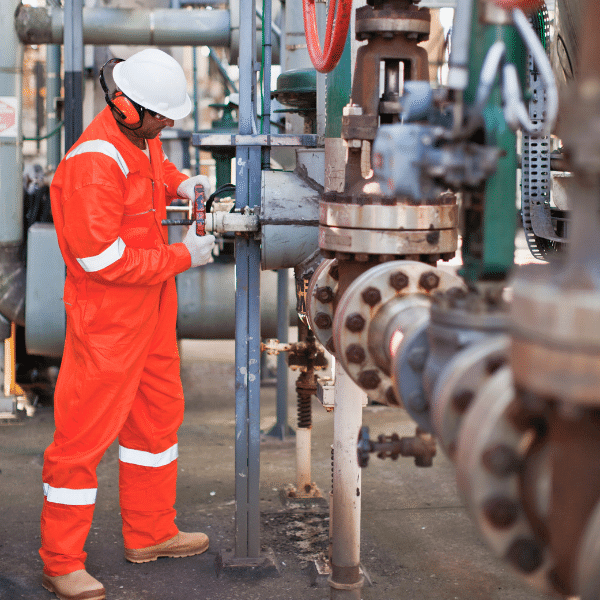
How fixed gas detection solutions are supporting World Day for Safety and Health at Work
The International Labour Organisation (ILO) marks its World Day for Safety and Health at Work on 28th April 2022. The spotlight on providing safe and healthy places to work has become more prominent in recent times, particularly as working practices emerged and evolved rapidly as part of the COVID-19 pandemic.
World Day for Safety and Health at Work is designed as an initiative, aimed at encouraging people and businesses to leverage an effective occupational health and safety (OHS) system to reduce risk and improve working conditions for all. As a result ILO is exploring the topic of participation and social dialogue in creating a positive safety and health culture.
ION Science is committed to protecting lives and preserving the environment with technologically advanced gas detection instrumentation. As a leading OEM in the development, manufacture, and supply of PID (photoionisation detection) volatile organic compound (VOC) gas detectors. ION Science has been working to keep workers and environments safe for over 30 years. A key part of ION Science’s portfolio is fixed gas detectors, which can play a vital role in a organisations occupational health and safety approach.
In industrial facilities where hazardous substances are part of the daily routine, fixed gas detectors are used to protect employees, for site-safety (assets) and the environment. Their purpose is to control gas-related risks and provide continuous monitoring for the prevention of explosive gas leaks or overexposure to toxic gases. The right and reliable fixed gas detection system can prevent and limit the impact of a potential gas leak.
Fixed detectors can be classified and approved for use in ATEX-zoned hazardous areas or what are deemed safe areas. That choice will usually be based on a gas hazard survey and/or a DSEAR report depending on the site and application. Once a working area has been identified as hazardous it must be classified into a zone based upon the frequency and persistency of the potentially explosive atmosphere. This will help to determine the controls needed on potential sources of ignition that may be present in the area:
- Zone 1 hazardous areas are classified as a working area where the presence of explosive gas is likely to occur during normal working conditions.
- Zone 2 hazardous areas are classified as working areas in which explosive gas is not likely to occur during normal operation and if it does it would not be for an extended period of time.

ION Science’s two main fixed gas detectors are the Falco and Titan. The Falco fixed gas detector is available as either a pumped or diffusive model. The Falco is intrinsically safe and ATEX certified making it approved for use in ATEX-zoned hazardous areas. It does not require a hot work permit, and only requires annual maintenance. Falco gas detectors are designed with Typhoon technology, making it able to withstand exceptionally harsh environments, including 0-100% relative humidity and condensing humidity, and temperatures from -40 to +50 °C without any compromise in performance. When you have the right gas detection system in place, your workers and site stay safe, and work continues smoothly.
Titan is a benzene-specific fixed gas detector, making it ideal for use in petrochemical applications. Benzene poses a serious health risk, even at low concentrations, so monitoring is essential for safe working environments. ION Science’s Titan detector is the only continuous benzene-specific fixed gas detector on the market, offering end users a unique ability to monitor benzene concentrations 24/7 to ensure any risk can be mitigated. With fast and accurate monitoring down to 0.1 ppm, the Titan is designed with worker health and safety in mind, alongside reliable, accurate benzene monitoring. It is also certified to ATEX, IECEx, UL and CSA standards for total reliability.
This World Day for Safety and Health, it is important to understand the role that technology can play in improving approaches to health and safety. With greater awareness, improved initiatives, better prevention tactics and a willingness to leverage effective occupational health and safety, the likelihood of improving working conditions for all is possible. ION Science is proud to offer fixed gas detectors which can aid in the detection and prevention of exposure to harmful VOCs and play a part in supporting worker health and safety around the world.
To find out more about World Day for Safety and Health at Work, please visit: https://www.ilo.org/global/topics/safety-and-health-at-work/events-training/events-meetings/world-day-safety-health-at-work/WCMS_836801/lang–en/index.htm
For press enquiries please contact: Hannah Albone hannah.albone@cogent.co.uk or 07483047567, alternatively contact David Leatham David.leatham@cogent.co.uk or 07483 071 833.
To find out more about how ION Science can support World Day for Safety & Health at Work with fixed gas detection solutions.
Please complete the form below and a member of our team will contact you shortly.






 United Kingdom
United Kingdom






